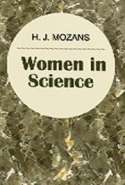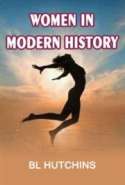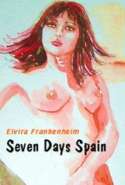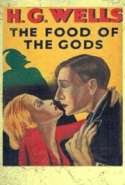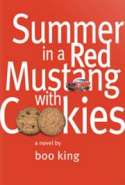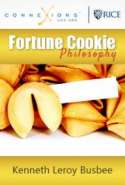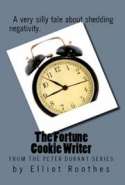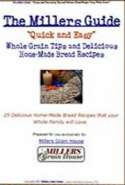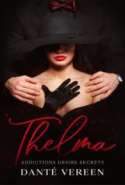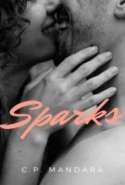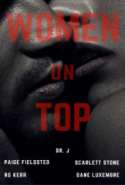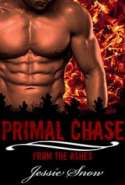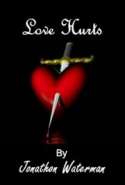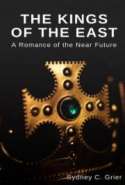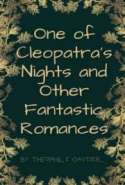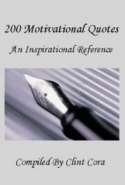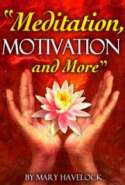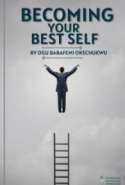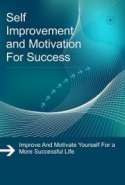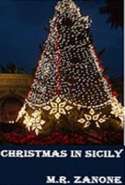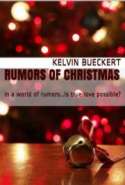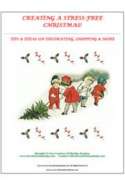1
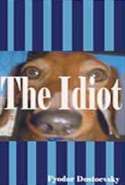
Fyodor Dostoevsky | Fiction Classics
Rating:
Returning to Russia from a sanitarium in Switzerland, the Christ-like epileptic Prince Myshkin finds himself enmeshed in a tangle of love, torn between two women - the notorious kept woman Nastasya and the pure Aglaia - both involved, in turn, with the corrupt, money-hungry Ganya. In the end, Myshkin's honesty, goodness, and integrity are shown to be unequal to the moral emptiness of those around him.
2
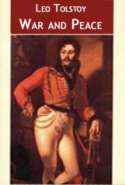
Leo Tolstoy | Fiction Classics
Rating:
The lives of Russian aristocrats become intertwined between the years 1805 and 1812 and during Napoleon's invasion of Russia.
3
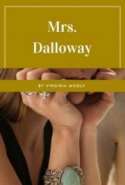
Virginia Woolf | Fiction Classics
Rating:
The Classic book Mrs. Dalloway by Virginia Woolf. This book is a fusion of 2 short stories. In which a day in the life of Clarissa Dalloway is chronicled; an upper-class socialite in post WW1 era.
4
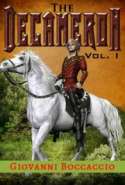
Giovanni Boccaccio | Fiction Classics
Rating:
The classic book, The Decameron, Volume I, by Giovanni Boccaccio.
5
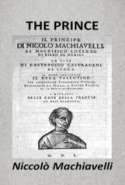
Niccolò Machiavelli | Humanities and Arts
Rating:
Il Principe (The Prince) is a political treatise by the Florentine public servant and political theorist Niccolò Machiavelli. Originally called De Principatibus (About Principalities), it was written in 1513, but not published until 1532, five years after Machiavelli's death. The treatise is not representative of the work published during his lifetime, but it is the most remembered, and the work responsible for bringing "Machiavellian" into wide usage as a pejorative term. It has also been suggested by some critics that the piece is, in fact, a satire.
6
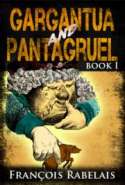
François Rabelais | Fiction Classics
Rating:
The classic book, Gargantua and Pantagruel, Book I, by François Rabelais.
7
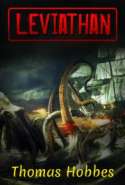
Thomas Hobbes | Philosophy (Academic)
Rating:
The classic work.
8
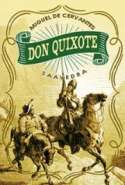
Miguel de Cervantes Saavedra | Fiction Classics
Rating:
Alonso Quixano enjoys reading books of high culture, romance, and chivalry, but he eventually loses his mind while attempting to create justice in the world.
9
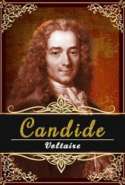
Voltaire | Misc Classics
Rating:
The classic book, Candide, by Voltaire.
10
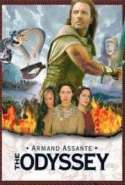
Homer. | Humanities and Arts
Rating:
The Odyssey (Ancient Greek: Ὀδύσσεια, Odysseia) is one of two major ancient Greek epic poems attributed to Homer. It is, in part, a sequel to the Iliad, the other work ascribed to Homer. The poem is fundamental to the modern Western canon, and is the second—the Iliad being the first—extant work of Western literature. It was probably composed near the end of the 8th century BC, somewhere in Ionia, the Greek coastal region of Anatolia.[1] The poem mainly centers on the Greek hero Odysseus (or Ulysses, as he was known in Roman myths) and his journey home after the fall of Troy. It takes Odysseus ten years to reach Ithaca after the ten-year Trojan War.[2] In his absence, it is assumed he has died, and his wife Penelope and son Telemachus must deal with a group of unruly suitors, ...
11
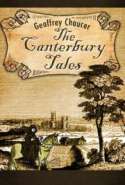
Geoffrey Chaucer | Poetry Classics
Rating:
A group of pilgrims embark on a long journey, and each of the characters reflect the irony and criticism of the church at the time.
12
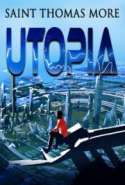
Saint Thomas More | Misc Classics
Rating:
The classic book, Utopia, by Saint Thomas More.
13
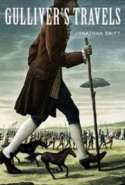
Jonathan Swift | Sci-Fi Classics
Rating:
During his travels, an Englishman encounters tiny people, giants, sorcerers, and horses who control humans.
14
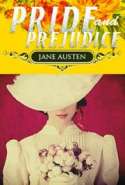
Jane Austen | Romance Classics
Rating:
The beautiful, young Elizabeth falls in love with Mr. Darcy, but he must control his pride while she tries to overcome her prejudice.
15
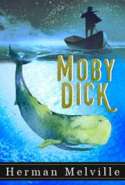
Herman Melville | Fiction Classics
Rating:
Captain Ahab's is fueled by his desire to kill the great white whale that tore off his leg leads, but his attempts lead to disaster.
16
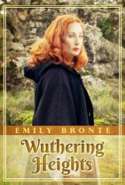
Emily Bronte | Fiction Classics
Rating:
A servant in the house at Wuthering Heights reveals the historic story of the love affair between Catherine and Heathcliff to a visitor who is currently staying there.
17
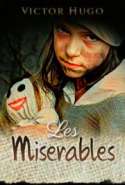
Victor Hugo | Fiction Classics
Rating:
Ex-convict Jean-Valjean struggles to find redemption after his release for a 19 year prison sentence for stealing food for his starving family.
18
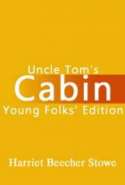
Harriet Beecher Stowe | Fiction Classics
Rating:
In order to pay off his debts, farmer Arthur Shelby, so he makes the tough decision to sell two of his slaves.
19
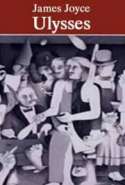
James Joyce | Fiction Classics
Rating:
It is June 16, 1904, when the events in the lives of Stephen Dedalus, Leopolm Bloom, and Molly Bloom are slowly unveiled throughout that single day.
20
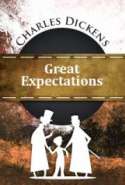
Charles Dickens | Fiction Classics
Rating:
Pip is a poor orphan who grows up in England in the early 1800's. He endures many hardships including poverty and violence.
21
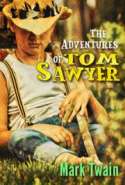
Mark Twain | Children's Classics
Rating:
Set on a 19th century Mississippi town, Tom Sawyer is a mischievous boy who skips school, witnesses to a crime, hunts for pirate treasure, and gets lost in a cave.
22
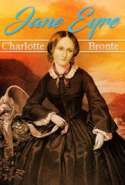
Charlotte Bronte | Romance Classics
Rating:
A poor, abused orphan named Jane uses her cleverness and perseverance to win the love of the man she loves.
23
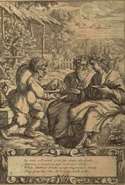
Aesop | Philosophy (Academic)
Rating:
The anonymously authored Aesop Romance (usually dated to the 1st or 2nd century CE; see above) begins with a vivid description of Aesop's appearance, saying he was "of loathsome aspect...potbellied, misshapen of head, snub-nosed, swarthy, dwarfish, bandy-legged, short-armed, squint-eyed, liver-lipped—a portentous monstrosity," or as another translation has it, "a faulty creation of Prometheus when half-asleep." The earliest text by a known author that refers to Aesop's appearance is Himerius in the 4th century, who says that Aesop "was laughed at and made fun of, not because of some of his tales but on account of his looks and the sound of his voice." The evidence from both of these sources is dubious, since Himerius lived some 800 years after Aesop.
24
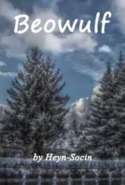
Heyn-Socin | Humanities and Arts
Rating:
The classic Anglo- Saxon epic poem
25
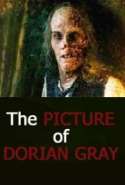
Oscar Wilde. | Humanities and Arts
Rating:
he Picture of Dorian Gray is the only published novel by Oscar Wilde, appearing as the lead story in Lippincott's Monthly Magazine on 20 June 1890, printed as the July 1890 issue of this magazine. Wilde later revised this edition, making several alterations, and adding new chapters; the amended version was published by Ward, Lock, and Company in April 1891. The novel tells of a young man named Dorian Gray, the subject of a painting by artist Basil Hallward. Basil is impressed by Dorian's beauty and becomes infatuated with him, believing his beauty is responsible for a new mode in his art. Dorian meets Lord Henry Wotton, a friend of Basil's, and becomes enthralled by Lord Henry's world view.
26
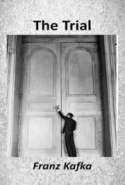
Franz Kafka | Humanities and Arts
Rating:
The Trial (German: Der Process) is a novel by Franz Kafka about a character named Josef K., who awakens one morning and, for reasons never revealed, is arrested and prosecuted for an unspecified crime. According to Kafka's friend Max Brod, the author never finished the novel and wrote in his will that it was to be destroyed. After his death, Brod went against Kafka's wishes and edited The Trial into what he felt was a coherent novel and had it published in 1925.
27
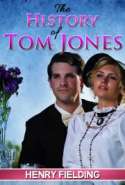
Henry Fielding | Fiction Classics
Rating:
Henry Fielding (1707–1754) began his career as a novelist in 1740 with the publications of Shamela and then Joseph Andrews, with which he anticipates his masterpiece, Tom Jones.Thomas Keymer is Elmore Fellow and Tutor in English at St. Anne’s College, Oxford. Alice Wakely teaches at the University of York.
28
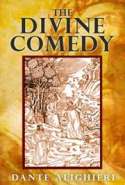
Dante Alighieri | Poetry Classics
Rating:
A pilgrim named Dante receives help of the Roman poet, Virgil, on a journey through Purgatory, on their way to Heaven.
29
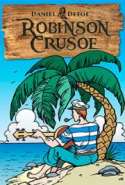
Daniel Defoe | Children's Classics
Rating:
When Robinson Crusoe is shipwrecked on a deserted island , he builds a house, grows crops, and saves the life of a native.
30
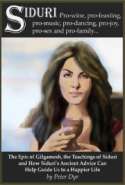
Peter Dyr | Self-Improvement
Rating:
Across the span of recorded history, at the birth of writing and civilization, there was the Epic of Gilgamesh. This seminal tale of gods, kings, battles, friendship, loss, the fear of death, the search for immortality and advice on how one should live life, represents our first complete work of literature. While the origin of the Epic of Gilgamesh is lost to the sands of time, it is probable that this story had been verbally transmitted for a very long time before the invention of writing, but we have no way of knowing when, where or why the story actually originated or even how many original contributors there were. What we do know is that the story encompassed a large number of concepts, ideas and philosophies, and was considered important enough that it was told from generation to generation for hundreds of years, before being immortalized in clay around four thousand years ago. Unfortunately, the original "Old Babylonian" version of the Epic of Gilgamesh is incomplete...
31

Laurence Sterne | Fiction Classics
Rating:
The classic book, The Life and Opinions of Tristram Shandy, Gentleman, by Laurence Sterne.
32
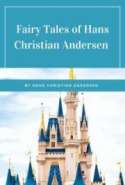
Hans Christian Andersen | Short Stories Classics
Rating:
The Classic book Fairy Tales of Hans Christian Andersen by Hans Christian Andersen. Here are all the stories included: A Story,By the Almshouse Window,The Angel,Anne Lisbeth,The Conceited Apple-branch,Beauty of Form and Beauty of Mind,The Beetle who went on his Travels,The Bell,The Bell-deep,The Bird of Popular Song,The Bishop of Borglum and his Warriors,The Bottle Neck,The Buckwheat,The Butterfly,A Cheerful Temper,The Child in the Grave,Children's Prattle,The Farm-yard Cock and the Weather-cock,The Daisy,The Darning-Needle,Delaying is not Forgetting,The Drop of Water,The Dryad,Jack the Dullard,The Dumb Book,The Elf of the Rose,The Elfin Hill,The Emperor's New Suit,The Fir Tree,The Flax,The Flying Trunk,The Shepherd's Story of the Bond of Friendship,The Girl Who Trod on the Loaf,The Goblin and the Huckster,The Golden Treasure,The Goloshes of Fortune,She was Good for Nothing,Grandmother,A Great Grief,The Happy Family,A Leaf from Heaven,Holger Danske,Ib and Little Christina,The Ice Maiden,The Jewish Maiden,The Jumper,The Last Dream of the Old Oak,The Last Pearl,Little Claus and Big Claus,The Little Elder-tree Mother,Little Ida's Flowers,The Little Match-seller,The Little Mermaid,Little Tiny or Thumbelina,Little Tuk,The Loveliest Rose in the World,The Mail-coach Passengers,The Marsh King's Daughter,The Metal Pig,The Money-box,What the Moon Saw,The Neighbouring Families,The Nightingale,There is no Doubt about it,In the Nursery,The Old Bachelor's Nightcap,The Old Church Bell,The Old Grave-stone,The Old House,What the Old Man Does is Always Right,The Old Street Lamp,Ole-Luk-Oie, the Dream God,Ole the Tower-keeper,Our Aunt,The Garden of Paradise,The Pea Blossom,The Pen and the Inkstand,The Philosopher's Stone,The Phoenix Bird,The Portuguese Duck,The Porter's Son,Poultry Meg's Family,The Princess and the Pea,The Psyche,The Puppet-show Man,The Races,The Red Shoes,Everything in the Right Place,A Rose from Homer's Grave,The Snail and the Rose-tree,A Story from the Sand-hills,The Saucy Boy,The Shadow,The Shepherdess and the Sheep,The Silver Shilling,The Shirt-collar,The Snow Man,The Snow Queen,The Snowdrop,Something,Soup from a Sausage Skewer,The Storks,The Storm Shakes the Shield,The Story of a Mother,The Sunbeam and the Captive,The Swan's Nest,The Swineherd,The Thistle's Experiences,The Thorny Road of Honor,In a Thousand Years,The Brave Tin Soldier,The Tinder-box,The Toad,The Top and Ball,The Travelling Companion,Two Brothers,Two Maidens,The Ugly Duckling,Under the Willow Tree,In the Uttermost Parts of the Sea,What One Can Invent,The Wicked Prince,The Wild Swans,The Will-o-the-Wisp in the Town, Says the Wild Woman,The Story of the Wind,The Windmill,The Story of the Year
33
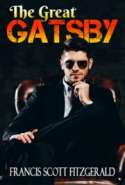
Francis Scott Fitzgerald | Fiction Classics
Rating:
In 1922, F. Scott Fitzgerald announced his decision to write "something new, something extraordinary and beautiful and simple + intricately patterned." That extraordinary, beautiful, intricately patterned, and above all, simple novel became The Great Gatsby, arguably Fitzgerald's finest work and certainly the book for which he is best known. A portrait of the Jazz Age in all of its decadence and excess, Gatsby captured the spirit of the author's generation and earned itself a permanent place in American mythology. Self-made, self-invented millionaire Jay Gatsby embodies some of Fitzgerald's--and his country's--most abiding obsessions: money, ambition, greed, and the promise of new beginnings. "Gatsby believed in the green light, the orgiastic future that year by year recedes before us. It
34
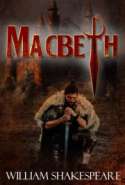
William Shakespeare | Fiction Classics
Rating:
Macbeth is among the best-known of William Shakespeare's plays, and is his shortest tragedy, believed to have been written between 1603 and 1606. It is frequently performed at both amateur and professional levels, and has been adapted for opera, film, books, stage and screen. Often regarded as archetypal, the play tells of the dangers of the lust for power and the betrayal of friends. For the plot Shakespeare drew loosely on the historical account of King Macbeth of Scotland by Raphael Holinshed and that by the Scottish philosopher Hector Boece. There are many superstitions centred on the belief the play is somehow "cursed", and many actors will not mention the name of the play aloud, referring to it instead as "The Scottish play".







































